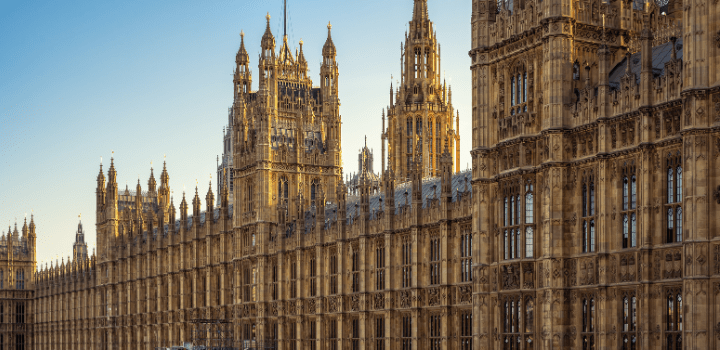Under all the pomp and circumstance that parliament so thrives on, yesterday we saw a king’s speech with nearly 40 bills designed to, in Starmer’s words, “take the brakes off Britain”.
With Labour’s first king’s speech in 15 years, it is perhaps unsurprising that it included such a massive legislative agenda for the next parliamentary session, but what do all those bills actually mean?
The green agenda is at the heart of growth ambitionsEssentially we learnt that the government is intent on prioritising growth above all other political ambitions and, one way or another, almost every bill announced in the speech can be linked back to the primary mission of growth and the economy.
So how did climate, nature and environment policies fare in the context of the laser-focus on growth?
The government were overt in saying they recognise “the urgency of the global climate challenge” and, while there are some gaps, we should be happy with many of yesterday’s announcements which signal a clear direction of travel where the green agenda is a central pillar.
On the detail, as expected, much of the environmental focus was on energy and the mission to decarbonise our electricity supply by 2030. The introduction of the GB Energy Bill, which will set up a publicly owned energy company to own, manage and operate clean power projects across the country, is hugely welcome and represents a meaningful shift away from fossil fuels in favour of renewable generation, as promised in Labour’s manifesto.
On transport, there was clear intent on renationalising the railways with the creation of Great British Railways (GBR) to ensure rail is run in the interests of the public, rather than for private profit, regardless of the quality of service being provided. We also heard of new legislation to allow greater public sector involvement in running local bus networks. Both of these commitments are welcome (although our recent bus report encourages the government to go even further on the latter) and we will be looking out for a draft bill to entrench climate responsibility into GBR’s constitution and planning to maximise the potential of rail to change how we travel.
On the role of local authorities, we were also pleased by the introduction of an English Devolution Bill which looks to recognise the role local leaders play, giving them more support and powers over things like skills, energy, housing, planning and net zero. This should make it easier to facilitate pro-environment decision making, although the bill must also be cognisant of the current level of under-resourcing that will continue to hamper councils unless addressed.
Central to all of this is the government’s pitch on root and branch reform to the planning system, which Starmer laid the groundwork for at party conference last year with his promise to “bulldoze” the planning system. There is no doubt that planning is a cornerstone of both the 2030 clean power mission and tackling the UK’s dire housing crisis, but we do need assurances that this won’t come at the expense of nature. The government must demonstrate its understanding of the nuance required to strategically tackle the planning agenda.
There are policy gaps in the government’s planWhile we missed references in the speech to resources and the circular economy, and any bulking out of the promised warm homes plan, the most glaring omission was on nature, which also didn’t get a single mention. The closest we got was on cleaning up our waterways which, though extremely welcome, is far from the silver bullet to ensure the government reaches its legally binding nature targets. It goes without saying that we cannot tackle the climate crisis or thrive as people without a healthy natural world. We need some clear signals from government that nature is being accounted for in decision making, particularly when planning reform is so central to its agenda.
Taking a step back from the environmental aspects of the king’s speech, some have concluded that it was underwhelming, used to bring forward unfinished legislation from the last government and present the more concrete and easily implementable parts of the manifesto, with the insinuation that the big and difficult policies are waiting for the next king’s speech.
We should be optimistic about these early stepsIn that context, I actually think that action on climate and environment fared pretty well, so I’m determined to be more optimistic. I think it signalled a step change for a new government with a positive agenda for change on the climate crisis (even if the nature crisis is still not getting the attention it deserves).
Now we are tasked with the job of holding the government to account and making sure these changes work for both people and planet for years to come. No pressure.
Discover more from Inside track
Subscribe to get the latest posts sent to your email.
